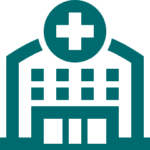Updating Your Travel Nurse Resume
Update Your Travel Nurse Resume to Set Yourself Apart
Interested in a FREE travel nurse resume evaluation by an experienced industry professional? Fill out the form at the bottom of this post to find out how your resume stands up!
Travel nursing is one of the most competitive niches within the healthcare industry. Within a matter of hours (sometimes even minutes), a new travel contract is posted, filled and then closed. Blink and you’ll miss the opportunity. If you’re thinking about starting a new travel contract this spring, it may also be time to update your resume to make sure you stand out to recruiters. The key is simple: create a travel nurse resume that conveys the right information in an easily digestible format.
We consulted our experienced travel nurse recruiters here at Premier and outlined a step-by-step process for creating the “perfect” nursing resume: one that succinctly captures all the pertinent details. We have also highlighted some “do’s” and “don’ts” to help ensure that your resume ends up on top of the “must contact” pile. As a bonus, you can click here to download our free travel nurse resume template, guaranteed to capture all the information recruiters and hiring managers are looking for.
[maxbutton id=”3″ ]
Travel Nurse Resume Format
Start at the Top
 When a recruiter receives a travel nurse resume, the first place they look is at the header, the topmost section of the resume that serves as a business card of sorts. To ensure that this section is as effective as possible, include your full legal name (first name, middle initial, last name), followed by your nursing credentials (RN, BSN, MSN, CRNA, etc.). This simple practice immediately lets the recruiter or hiring manager know who you are and what your experience level is. Also, be sure to provide a current email address and phone number so the recruiter or hiring manager can easily connect with you about travel nursing opportunities.
When a recruiter receives a travel nurse resume, the first place they look is at the header, the topmost section of the resume that serves as a business card of sorts. To ensure that this section is as effective as possible, include your full legal name (first name, middle initial, last name), followed by your nursing credentials (RN, BSN, MSN, CRNA, etc.). This simple practice immediately lets the recruiter or hiring manager know who you are and what your experience level is. Also, be sure to provide a current email address and phone number so the recruiter or hiring manager can easily connect with you about travel nursing opportunities.
Provide a Summary
 Many clinicians ask if they really need to include a “summary” section on their travel nurse resume. The answer is YES! Unlike an objective statement that details what you hope to gain from a future employer, a summary statement sets you apart from the crowd by highlighting the skills and abilities that you can offer your future employer. Furthermore, recruiters and employers appreciate being able to discern at a glance what specialties you’re competent in, the number of years of relevant job experience that you have and what skills make you the best candidate for the job. See below for an example of an effective summary statement:
Many clinicians ask if they really need to include a “summary” section on their travel nurse resume. The answer is YES! Unlike an objective statement that details what you hope to gain from a future employer, a summary statement sets you apart from the crowd by highlighting the skills and abilities that you can offer your future employer. Furthermore, recruiters and employers appreciate being able to discern at a glance what specialties you’re competent in, the number of years of relevant job experience that you have and what skills make you the best candidate for the job. See below for an example of an effective summary statement:
“Compassionate and experienced RN with over 10 years of emergency department experience and three years of travel nursing experience in clinical settings. Organized and able to multitask while still providing exceptional care to acute and emergent patients.”
List All Licenses & Certifications
 To certify that you are the right candidate for the job, you will need to include a complete list of all the licenses and certifications that you hold on your travel nurse resume. The following formatting guidelines, when followed, will provide all the information a recruiter or hiring manager will need to move forward with your application. Include:
To certify that you are the right candidate for the job, you will need to include a complete list of all the licenses and certifications that you hold on your travel nurse resume. The following formatting guidelines, when followed, will provide all the information a recruiter or hiring manager will need to move forward with your application. Include:
- The complete title of the license or certification
- The full name of the certifying body
- The license or certification number (if applicable)
- The date you obtained the license or certification;
- The expiration date (if applicable)
- The correct significations and state if it is a compact nursing license.
Travel Nurse Resume Pro Tip: To cut down on the amount of time that the credentialing process will take, gather all your license and certification documents into one secure location so that they are easily accessible when requested. Our compliance team with thank you!
Showcase Your Education
 You worked hard for your nursing degree and your travel nurse resume should reflect that portion of your journey. In addition to listing all the licenses and certifications that you have obtained, be sure to include all the higher educational institutions that you attended in pursuit of your degree(s). To make this information as clear and concise as possible, list the type of degree that you obtained, the name and location of the degree bestowing institution and the dates that you attended. Do not include less specialized or non-relevant degrees (i.e. high school diploma).
You worked hard for your nursing degree and your travel nurse resume should reflect that portion of your journey. In addition to listing all the licenses and certifications that you have obtained, be sure to include all the higher educational institutions that you attended in pursuit of your degree(s). To make this information as clear and concise as possible, list the type of degree that you obtained, the name and location of the degree bestowing institution and the dates that you attended. Do not include less specialized or non-relevant degrees (i.e. high school diploma).
Don’t Skimp on Work Experience
 Think of the work experience section of your travel nurse resume as the headlining act. As the headlining act, this section should take up the majority of the space on your resume and should be filled with all the experiences and skills that you have earned throughout your tenure as a nurse. In essence, the work experience section is your opportunity to tell recruiters and hiring managers why you are more uniquely qualified than any other nurse.
Think of the work experience section of your travel nurse resume as the headlining act. As the headlining act, this section should take up the majority of the space on your resume and should be filled with all the experiences and skills that you have earned throughout your tenure as a nurse. In essence, the work experience section is your opportunity to tell recruiters and hiring managers why you are more uniquely qualified than any other nurse.
To convey this information in an organized fashion, use a consistent format for each work experience that you list. For instance, each work experience listed should have a header that conveys the following information:
- The official name of the healthcare staffing agency that employed you (if applicable)
- The official name of the facility where you worked
- The city and state where the facility was located
- The exact start and end dates of your employment (if you’re still employed there, just write “present” in lieu of an end date)
To help ensure that the description of your job duties conveys the kind of information that recruiters and hiring managers want to know, consider touching upon the following points:
- The type of facility (i.e. senior nursing care, long-term care, trauma center)
- The hospital’s designation (i.e. teaching hospital, magnet hospital, level I trauma center)
- The number of beds in the unit
- The nurse-to-patient ratio
- If you floated to other units, and if so, that unit’s specialty
- If you ever assumed charge nurse duties
- Any computer skills that you used to perform your job (i.e. EHR/EMR experience).
While some believe that a travel nurse resume should never be longer than a page, we believe that you should use as much space as you need to capture all your relevant experience. However, keep in mind that recruiters and hiring managers prefer short and concise documents. Additionally, if you have any gaps in your work history (longer than 30 days), provide a brief explanation on your resume as to what you were doing during that time and be prepared to discuss those breaks in an interview.
Travel Nurse Resume Do’s & Don’ts
Now that you know what recruiters and hiring managers are looking for in a travel nurse resume, it’s time to touch upon some “do’s” and “don’ts” to ensure that your final document is in pristine order.
Do’s
- Use a consistent format throughout your travel nurse resume (i.e. font type, font size, clearly defined sections). You only get one chance to make a good first impression. A nicely formatted resume communicates organizational abilities and competency.
- Use relevant keywords and industry jargon. For instance, when describing your experience with EHR systems, list by name what programs you have experience with. These minor details can make all the difference in determining if you’re selected for an interview or not.
- Be sure to include all the specialties that you are qualified to work in. Knowing the full range of your abilities makes it easier for your recruiter to match you with potential job opportunities. Who doesn’t like to have options when it comes to their career?
- List your education and work experience in reverse chronological order. While the totality of your experience will play a factor in determining if you are selected for the position, recruiters and hiring managers are most interested in what you’ve done recently.
- Before you submit your travel nurse resume, take the time to proofread and double-check for errors. Run your resume through your word processing software’s spelling and grammar checker. Ask a friend or a colleague to review the document and provide you with feedback.
Don’ts
 Since recruiters and hiring mangers appreciate information that is presented in a direct and “to-the-point” manner, do not include information about your personal life or other non-job-related activities (i.e. non-nursing jobs and non-nursing volunteering). While you may enjoy singing in your church’s choir, it has no bearing on your abilities as a nurse.
Since recruiters and hiring mangers appreciate information that is presented in a direct and “to-the-point” manner, do not include information about your personal life or other non-job-related activities (i.e. non-nursing jobs and non-nursing volunteering). While you may enjoy singing in your church’s choir, it has no bearing on your abilities as a nurse.- Avoid using resume templates or formats that include graphics or pictures. These additional details don’t enhance the important information and are viewed as a distraction. Use a classic, simple layout to achieve a highly professional look.
- While it is important to be honest and accurate, don’t be too modest when it comes to describing your accomplishments and achievements within the healthcare industry. Remember, your travel nurse resume is a chance to sell yourself to recruiters and hiring managers. Separate yourself from the pack.
- Don’t waste valuable real estate on your resume by including a list of references (unless specified). In fact, don’t even include a “references available upon request” statement. If professional references are needed to secure the position, the recruiter or hiring manger will contact you and request that information.
While taking the time to craft a resume that communicates your exceptional abilities in a concise manner will require an investment of time, that investment will yield dividends as you apply and land interviews for new travel nurse opportunities. To help ensure that your resume is ready for the next submittal, Premier Medical Staffing Services invites you to upload a copy of your current resume for a free evaluation by an experienced travel nurse recruiter. We look forward to helping you take your travel nurse career to new places.
 Since recruiters and hiring mangers appreciate information that is presented in a direct and “to-the-point” manner, do not include information about your personal life or other non-job-related activities (i.e. non-nursing jobs and non-nursing volunteering). While you may enjoy singing in your church’s choir, it has no bearing on your abilities as a nurse.
Since recruiters and hiring mangers appreciate information that is presented in a direct and “to-the-point” manner, do not include information about your personal life or other non-job-related activities (i.e. non-nursing jobs and non-nursing volunteering). While you may enjoy singing in your church’s choir, it has no bearing on your abilities as a nurse.